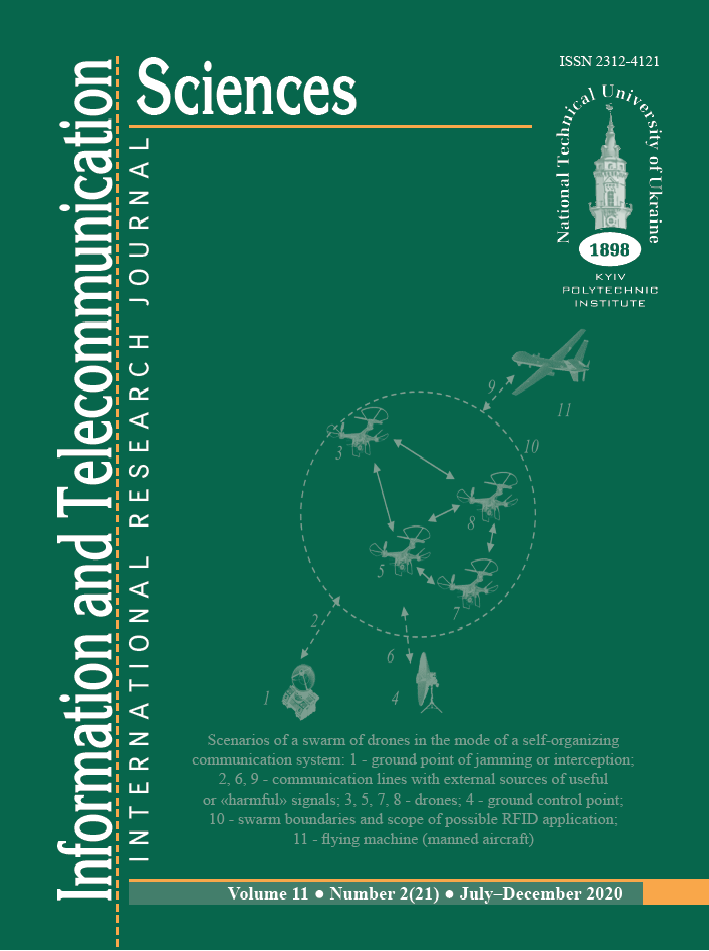ONTOLOGY OF SCIENTIFIC AND EDUCATIONAL INSTITUTIONS INFORMATION
DOI:
https://doi.org/10.20535/2411-2976.22020.86-91Keywords:
scientific institution, quality assessment, information, activity, ontology.Abstract
Background. The idea to automate the process of scientific and educational institutions evaluation is relevant. Such automation requires information about this institutions functioning to be structured and systematized. The study proposes to use the ontology as one of the models of knowledge representation to organize information of scientific institutions for its structuring and systematization, as well as for its further processing and usage.
Objective. The aim of the paper is to develop the approach to ontological model development for the representation of information accumulated by various scientific and educational institutions and organizations.
Methods. Method of ontological modeling was used as modern means of artifitual inteligence to structure, systematize and analize the information of scientific and educational institutions.
Results. As the result of the research the ontology of scientific institutions information was developed using TEDAOS software platform. Ontology was filled with data. At the moment ontology model includes 895 objects and 2837 data elements (attributes).
Conclusions. The ontological representation allows to evaluate the quality of scientific institutions functioning on the basis of national principles for such assessment. The information how to organize the evaluation process as well as generally accepted evaluation criteria are also stored in the ontological model.
References
Methodology for evaluating the effectiveness of
the activities of scientific institutions of the National
Academy of Sciences of Ukraine (in Ukrainian),
Resolution of the NAS Presidium of Ukraine 241, July
[Online]. Available:
http://www.nas.gov.ua/legaltexts/DocPublic/P-180711-
-1.pdf.
Gruber T.R., “Towards Principles for the Design
of Ontologies Used for Knowledge Sharing,” Int. J.
Hum.-Comp. Stud., vol. 43, no. 5–6, pp. 907 – 928,
Guarino N., Guizzardi G., “In Defense of
Ontological Foundations for Conceptual Modeling,”
Scand. J. Inf. Sys., vol. 18. no. 1, pp. 115– 26, 2006.
Sowa J.F., “The role of logic and ontology in
language and reasoning,” in Theory and Applications of
Ontology: Philosophical Perspectives, Berlin: Springer,
, ch. 11., pp. 231–263, doi:10.1007/978-90-481-
-1_11.
Guarino N., Giaretta P., “Ontologies and
Knowledge Bases Towards a Terminological
Clarification,” in Towards Very Large Knowledge
Bases: Knowledge Building & Knowledge Sharing,
N.J.L. Mars, Eds., Amsterdam, Netherlands: IOS Press,
, pp. 25-32.
Borovikova O.I., Zagorulko Yu.A., and Sidorova
E.A., “An approach to the automation of the collection
of ontological information for the Internet portal of
knowledge,” (in Russian), in: Proc. Dialog'2005 Int.
Conf. Comp. Ling. Intel. Techn., Jul. 2005, pp. 65–70.
Guarino N., “The Ontological Level: Revisiting 30
Years of Knowledge Representation,” in: Conceptual
Modeling: Foundations and Applications. Lecture
Notes in Computer Science, A.T. Borgida, Ed., Berlin:
Springer, 2009, pp. 52 – 67, doi:10.1007/978-3-642-
-4_4.
Novogrudska R.L., Globa L.S., Koval O.V., and
Senchenko V. R., “Ontology model of intelligent
modeling system for marine facilities identification,” in:
Int. Conf. Radio Electronics & Info
Communications (UkrMiCo), Sept. 2017, pp. 1-5, doi:
1109/UkrMiCo.2017.8095426.
Velychko V.Yu., Popova M.A., Prykhodniuk V.V.,
and Strizhak O.E., “TEDAOS - IT platform for the
formation of transdisciplinary information
environments,” (in Ukrainian), Weap. Sys. Milit. Equip.,
no. 1, pp. 10-19, Apr. 2017.
Popova M.A., Strizhak O.E., “Ontological
interface as a means of presenting information
resources in a GIS environment,” (in Ukrainian), Scient.
Not. Taurida Nat. Univ., vol. 26(65), no. 1, pp. 127-
, May 2013.

